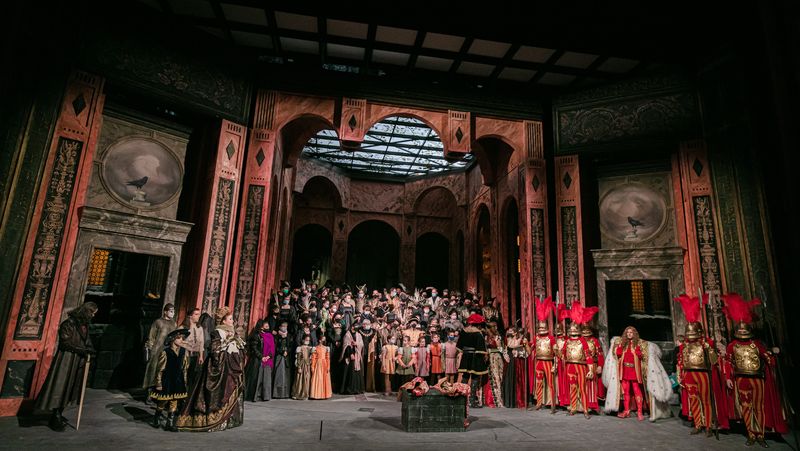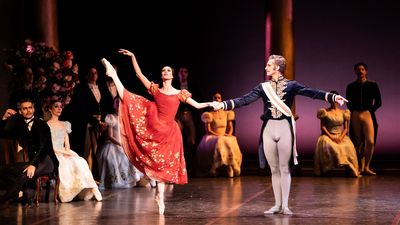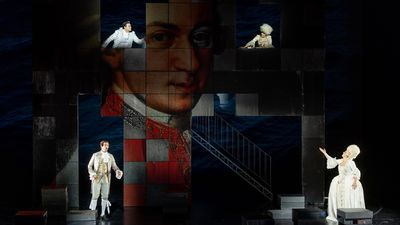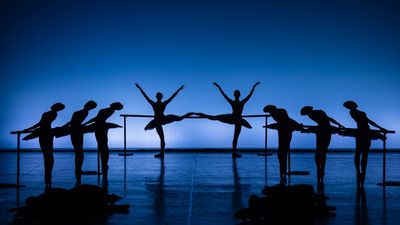
The curtains are finally about to rise again in the renovated Ybl Palace on Andrássy Avenue after five years, which the OPERA celebrates with a gala concert on 12 March 2022, and with the original version of Erkel’s opera Hunyadi László and MacMillan’s ballet Mayerling in the two days following it. The renewed Opera House will be open to the public from 15 March in the form of guided tours as well. As a prelude to the grand event, the OPERA organises students' premieres of the two new productions on 11 and 12 March in association with the new strategic partner, MVM Zrt.
Every artistic branch of the OPERA will represent itself in the show celebrating the reopening of the Opera House at 8:00 p.m. on 12 March in the presence of President János Áder. The programme of the Reopening Gala is made up of pieces fitting the occasion, including Dohnányi’s rarely performed Festival Overture written for a monumental ensemble, excerpts from Kodály’s Háry János, and another excerpt from Seregi’s ballet The Taming of the Shrew. Besides works by Hungarian composers, pieces with Hungarian subjects will be played too – Rákóczi March by Berlioz, Hungarian Dance Nr. 5 by Brahms, Long Live the Hungarian! by J. Strauss II –, conducted by Plácido Domingo. The programme also features opera singers Gabriella Balga, Erika Gál, Mihály Kálmándy, Csaba Sándor, Csaba Szegedi and László Szvétek, ballet dancers Tatiana Melnik and Iurii Kekalo, the Hungarian State Opera Orchestra, Chorus and Children’s Chorus, as well as students of the Hungarian National Ballet Institute. Conductors: Ádám Medveczky, principal conductor Gergely Kesselyák and general musical director Kocsár Balázs. The evening will be hosted by Melitta Gyüdi, and directed by artistic director András Almási-Tóth. The performance will be broadcast live by the public television channel M5.
The next day, on 13 March, the OPERA will bring the original version of Hunyadi László to the stage for the first time in over 90 years. The main roles of the show feature Szabolcs Brickner (László Hunyadi), Klára Kolonits (Erzsébet Szilágyi), Dániel Pataky (King László V), Erika Miklósa (Mária Gara), Gábor Bretz (Palatine Gara), András Palerdi (Ulrik Cillei), Gabriella Balga (Mátyás Hunyadi) and Attila Erdős (Rozgonyi). The work will be performed by artists of the Hungarian National Ballet and students of the Hungarian National Ballet Institute (choreographed by Tamás Solymosi), and the Hungarian Sate Opera Orchestra, Chorus (chorus director: Gábor Csiki) and Children’s Chorus (chorus director: Nikolett Hajzer), conducted by general musical director Balázs Kocsár. Following its premier, the piece will be performed again on 15, 17, 23 and 27 March at the Opera House.
Ferenc Erkel made multiple changes and additions to his work after its 1844 premier, so some of the most famous parts, such as the overture, certain arias of László Hunyadi, Erzsébet Szilágyi and Mária Gara, as well as the Palotás (Palace Dance), were only added to the original piece over the following decade and a half. That is why somewhat strangely the original version of Hunyadi usually means the version finalized by Erkel in the 1860s. But the wider public know not this, but another, 1935 version of the piece, adjusted to the needs of the period in its music, text and dramaturgy by Miklós Radnai, Kálmán Nádasdy and Gusztáv Oláh, which then became part of the OPERA’s repertoire in this form for over half a century. Although thanks to the efforts of conductor Amadé Németh and dramaturge Géza Fodor there were several attempts to restore the original dramaturgy of the piece on record an on the stage in the 1980s, these kept the changes done to the text and arranged the music to fit them. This resulted in a hybrid work which continued to communicate the message of the original piece in a distorted form.
The production for the reopening of the Opera House is now prepared based on Hunyadi László’s 2006 critical edition published by the Institute for Musicology of the Hungarian Academy of Sciences and Katalin Szacsvai Kim, which Balázs Kocsár already used in 2010/11 when he conducted the production of Csokonai Theatre in Debrecen. The restored piece authentically reflects the elements characteristic of bel canto and French grand operas, which were also present in the original piece, while the text prepared by the director Szilveszter Ókovács with the involvement of the singers is also based on the original text by Béni Egressy – with the improvement of outdated parts that have lost their meaning or are difficult to sing by using solutions of his own as well as taking inspiration from Nádasdy’s version. The piece is set in an authentic scenery fitting the original version, the costumes and set of which were designed by Krisztina Lisztopád. The production also makes use of modern technology in the form of projections (animation design by Zsombor Czeglédi) and cutting-edge stage system solutions.
Following the opera premier, the stage of the Opera House will be taken by the Hungarian National Ballet on 14 March, bringing the neoclassical period piece Mayerling to the stage. The work choreographed by Sir Kenneth MacMillan for the Royal Ballet in London in 1978 tells the story of Crown Prince Rudolf of Habsburg and his lover, Baroness Mary Vetsera’s romantic affair ending in double tragedy. One of the most significant pieces of the prominent 20th-century Scottish choreographer, it pays special attention to the credible depiction of the emotional processes going on in the characters, similarly to the artist’s other mature feature ballets, while the work is also characterized by expert dance technique, spectacular visuals and carefully composed mass scenes. The piece, choreographed by MacMillan to the music of Franz Liszt, was first performed by the OPERA’s ballet ensemble in 2004. The leading roles are now double cast for Dmitry Timofeev and Gergő Ármin Balázsi (Rudolf), together with Tatiana Melnik, Aliya Tanykapeva and Lili Felméry (Mary), and the OPERA Orchestra is conducted by Ádám Medveczky. After the premier, the show will be played on the stage of the Opera House on 19, 24, 26, 27 and 30 March as well as 2 April.
Following the premiers, the Opera House will start offering guided tours of the building again from 15 March, so visitors can admire the renovated theatre even without having to buy a ticket to a show. During the national holiday, hour-long tours in Hungarian and English will be held in the areas accessible to the audience at 10:30 a.m., 12:00 noon, 1:30 p.m., 3:00 p.m. and 4:30 p.m. Later on, Hungarian tours will start at 1:30 p.m. every Sunday, while visitors can learn more about the building in English at 1:30 p.m., 3:00 p.m. and 4:30 p.m. every day.
Through OperAdventure and Ervin Lázár Programme, the OPERA proved over the past decade its dedication to the education of the next generation of opera and ballet goers and that it uses every opportunity to let primary and secondary school kids experience the beauty of these two genres live. In appreciation of this, MVM Zrt. decided to support the work of the theatre and another 100 such student performances until the 2023/24 season as part of its strategic partnership with the Hungarian State Opera. MVM OperAdventure, renewed as part of the partnership, invites secondary school classes to see the main rehearsals of upcoming premiers. The series starts on 11 March with a performance of Hunyadi László, followed by the students' premier of Mayerling the next day.
Photo by Attila Nagy


